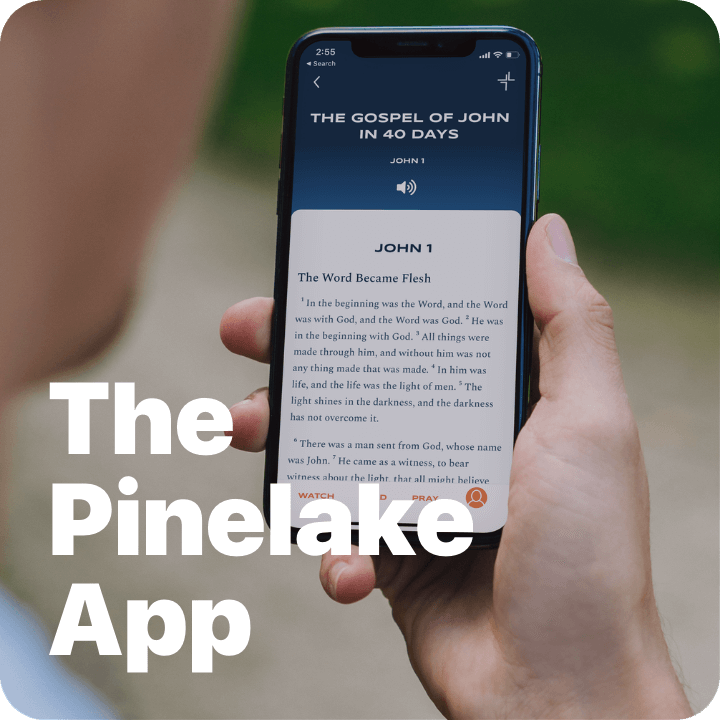
Bible Reading Plans
Truth Applied Changes Lives
That is why nearly eight years ago, we launched the L3 journal to help us as a church focus on studying God’s Word.

With the Pinelake Church App, you can read or listen to the daily L3 Bible Reading Plan. You can also use the app to watch sermons and stream worship services, submit or respond to prayer requests, and much more.
Four L3 Bible Reading Plans
Within the journal and app, you’ll find four plans — each different, but all purposefully designed to immerse you in the truth of Scripture.
The Story Plan
The Story Plan summarizes the Bible’s key accounts, highlighting the events and people that played a part in God’s story of redemption. No matter your age or where you are in your faith journey, the Story Plan is a great place to start.
The Chronological Plan
The Chronological Plan follows the story of how God rescued humanity through Jesus in the order that it happened. This plan is great for those who want to read the Bible with the context of a sequential timeline.
The One Year Plan
The One Year Plan combines two readings every day, typically an Old and a New Testament passage, walking you through the entire Bible in one year.
The Two Year Plan
The Two Year Plan provides one Old and one New Testament passage every day, as well as portions of the gospels. This plan is a great way to slow down and meditate on all God is saying through His Word.
L3 For Families
We believe parents are the primary disciplers of their children, and we’re here to walk with you. The L3 for Families is our way of helping the next generation learn from Jesus, live like Him, and lead others to do the same.
The R.E.A.P. Method
Get the Most Out of Reading the Bible
The Bible isn’t just a book; it’s how God speaks to us. And when we listen with open hearts, He changes us. That’s why we use a simple approach called R.E.A.P. to help us grow in the Word.
Before you start, pause and pray:
“Lord, here I am. Speak to me today.”
R—Read
Slow down. Ask the Holy Spirit to help you focus. Then read the passage carefully. Don’t rush. Pay attention to what stands out—words, phrases, or themes.
E—Examine
Look closer. What’s going on in the passage? Who’s speaking? What’s the context? What do you learn about God? Is there something to believe, obey, or avoid? Let the truth sink in.
A—Apply
Ask God to show you how this changes your life today. What do you need to do differently? How will this truth shape the way you think, speak, or act?
P—Pray
Talk to God about what you’ve read. Thank Him. Ask questions. Listen. This isn’t just a quiet time; it’s a real conversation with the One who loves you most.